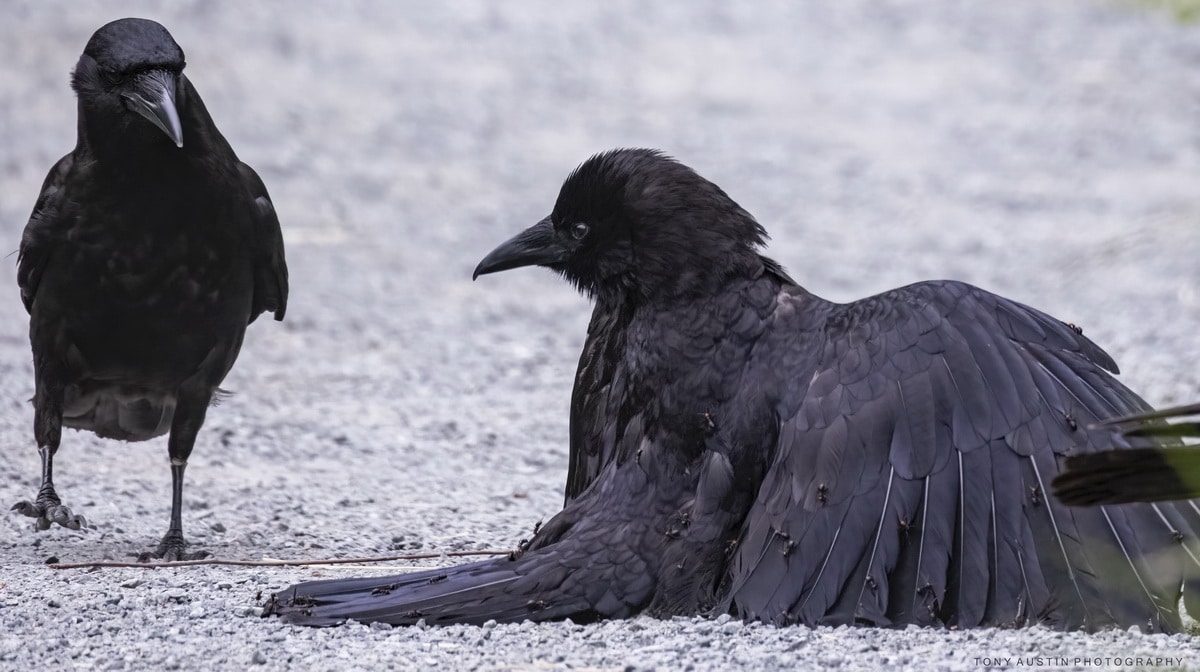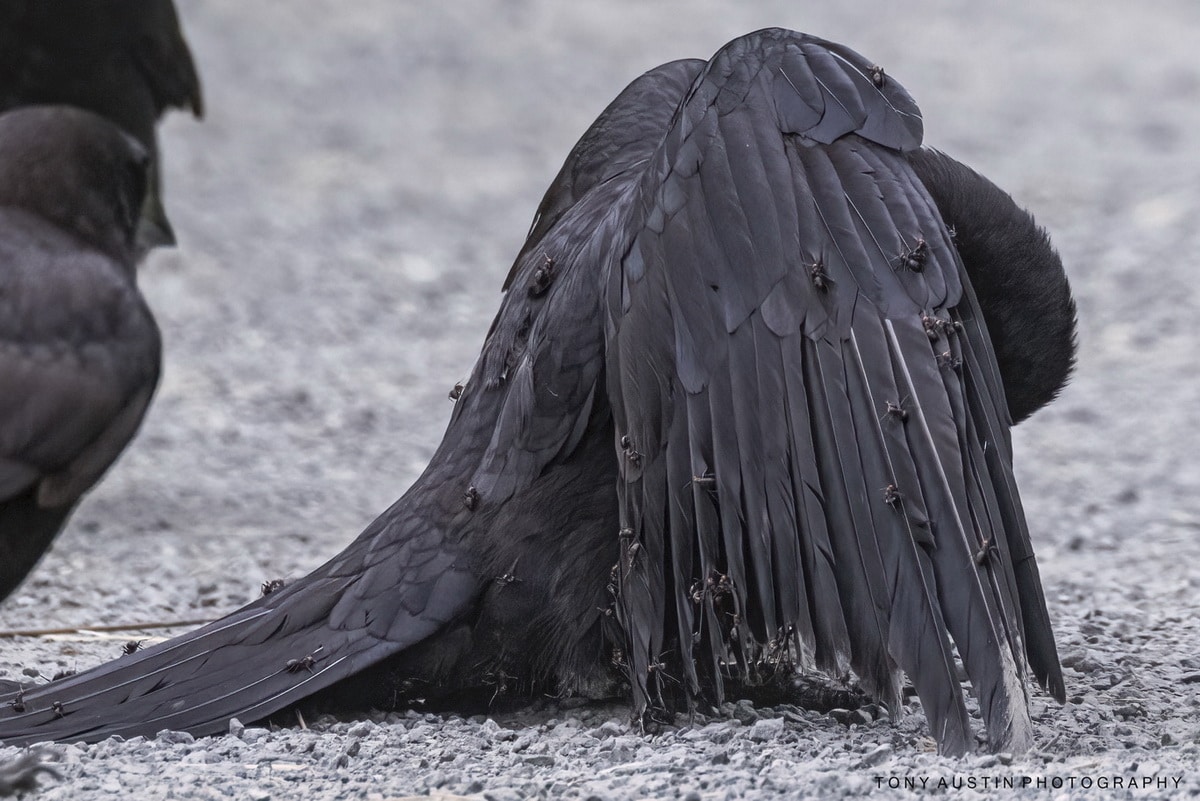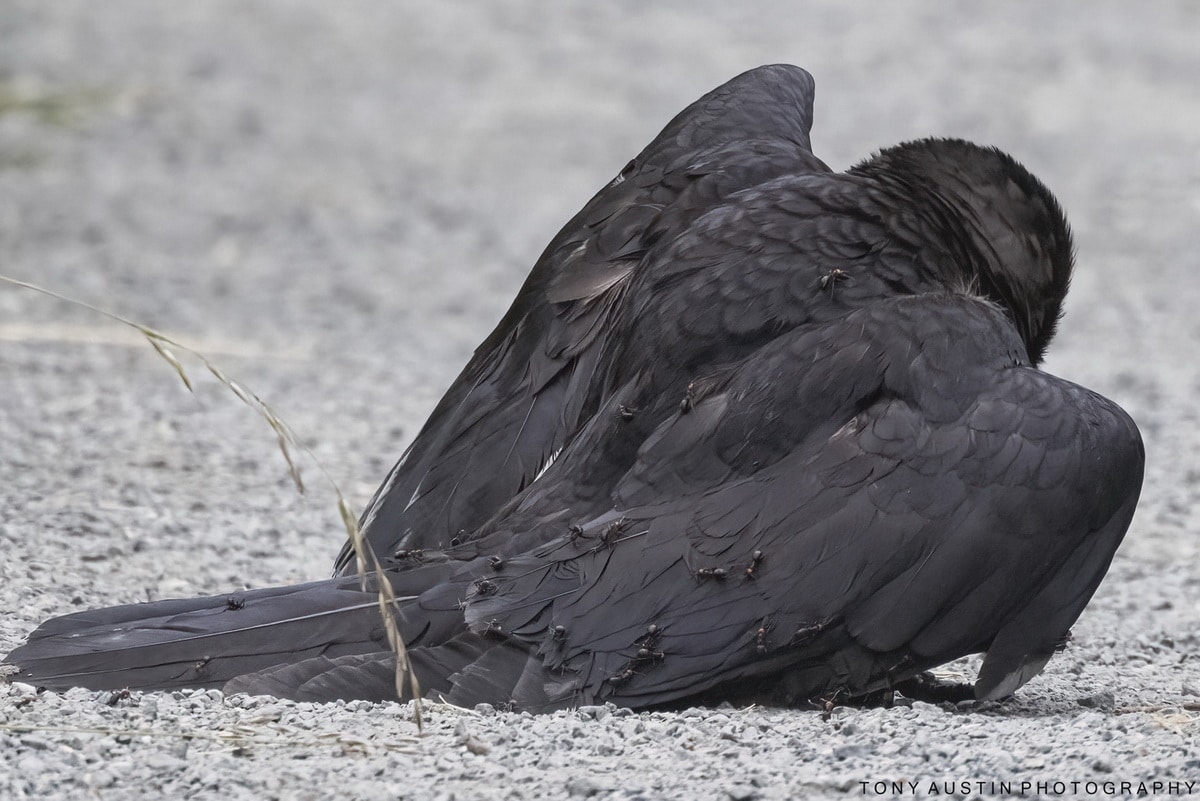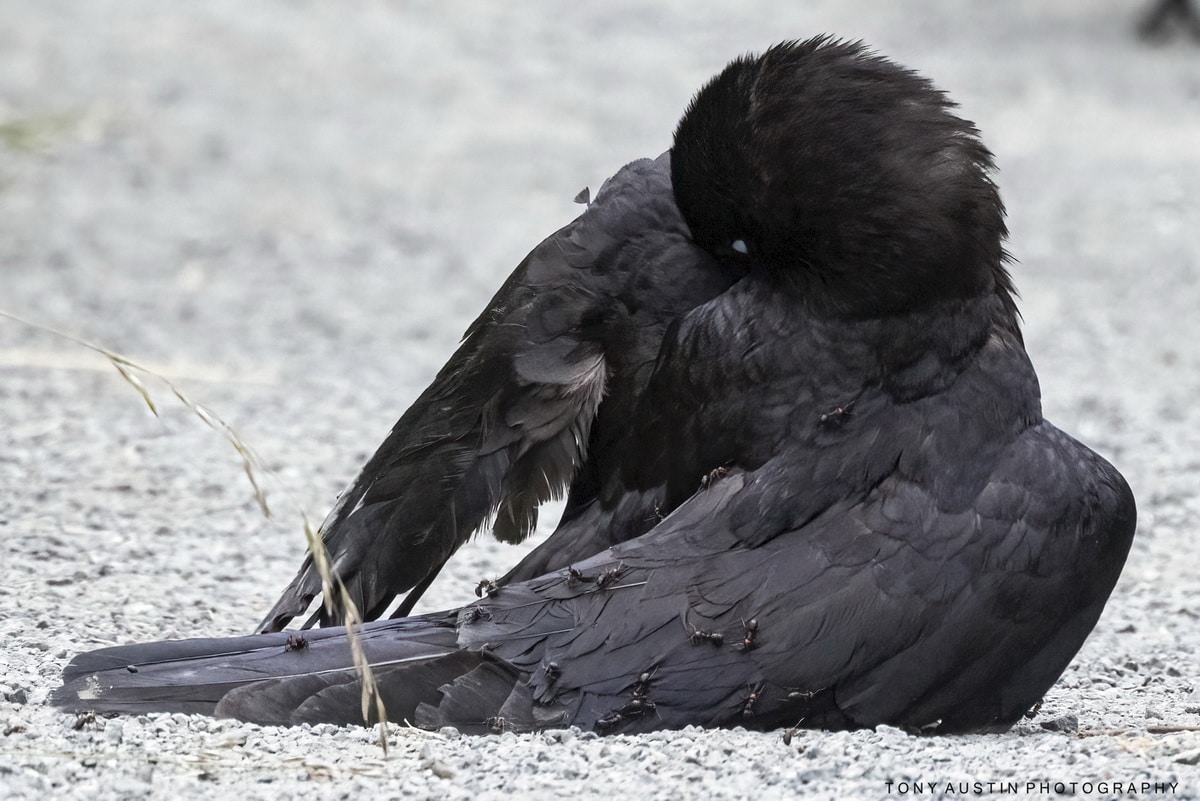
Photographer Tony Austin has been enthralled with photography since he was gifted an Instamatic 126 in 1963. But nothing quite prepared him for what was about to happen at the end of a recent nature walk. While Austin was ready to pack up, having not witnessed anything of interest, a murder of crows landed in his path. His decision to lay down and photograph them would have a huge reward, as he ended up documenting a rare sight—a crow taking an ant bath.
That’s right, the crow was actually laying on an anthill and letting the insects swarm up its feathers in an act known as anting. Many bird species practice anting, which is typically when a bird will sit on a tree branch and place a wing on the ground to allow one ant at a time to climb onto its feathers. This is known as active anting. What Austin photographed is even more rare. In this case, the crow actually set itself on top of an anthill to allow many ants to swarm it at the same time. Every once in a while, the crow would shake its head to ensure that the ants stayed off its beak and head. This practice is known as passive anting and is behavior more commonly found in robins and ravens. Unfortunately, scientists still don’t understand why birds partake in anting.
The behavior is so unusual, that Austin didn’t actually realize what he was witnessing until he got home. “One bird out of the group seemed to be taking a dust bath, but it appeared to be a bit more frantic than normal, with its wings splayed out on the gravel,” Austin tells My Modern Met. “The crow would leap into the air, land in the brush by the path and then jump back onto the dirt path. Its behavior did strike me as a bit odd, and I thought that maybe it was in some kind of distress, however, none of the other crows seemed concerned and, after a minute or two, they all took flight and landed in some trees. Because it was a bit of a gray day and this was a black bird on a white background (path) I was unable to see the ants on the bird and it wasn’t until I got home and started editing the photos that I saw the ants. On seeing the ant-covered crow, I was stunned and thought that the crow had just made a poor choice in choosing to land on an anthill!”
It was only once he posted the photos to Facebook that he realized the magnitude of what he’d photographed. A reporter, Cathy Kearney from CBC Vancouver, contacted him and wrote an article about anting. It was then that Austin realized what he had on his hands, as the images began circulating around the globe.
For Austin, the success of the photos has been a pleasant surprise. “I’ve spent a lifetime taking photos and it’s always been my passion,” Austin shares. “And, as a photographer, you always hope that your photos are seen and enjoyed by others. That is, for me, the point of photography—to be seen. So it is immensely gratifying to be able to share this shot of a little-seen and even less understood behavior with so many others. I do also feel a great debt of gratitude to that crow and his ant companions for giving me a moment I will long remember.”
Photographer Tony Austin was on a nature walk when he saw a crow swarmed by ants.

It turns out that he’d photographed a little-seen behavior known as anting.

 Tony Austin: Website | Facebook | Instagram
Tony Austin: Website | Facebook | Instagram
My Modern Met granted permission to feature photos by Tony Austin.
Related Articles:
20+ Animals Who Have Perfected the Art of Camouflage
This African Gray Parrot Is the First Animal To Ever Ask an Existential Question
Study Reveals That Cats Are Bonded to Their Humans Just as Much as Dogs and Babies
Viral Posts Claim Wombats Are Shepherding Animals to Their Burrows During Australian Bushfires
